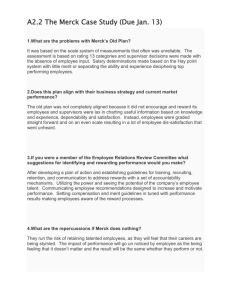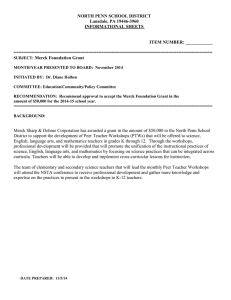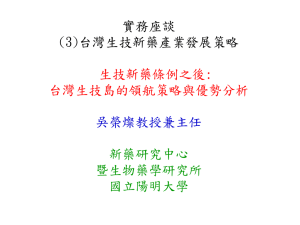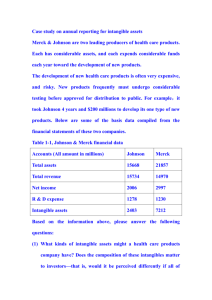Merck & Co. Could Have Won the Suit
advertisement
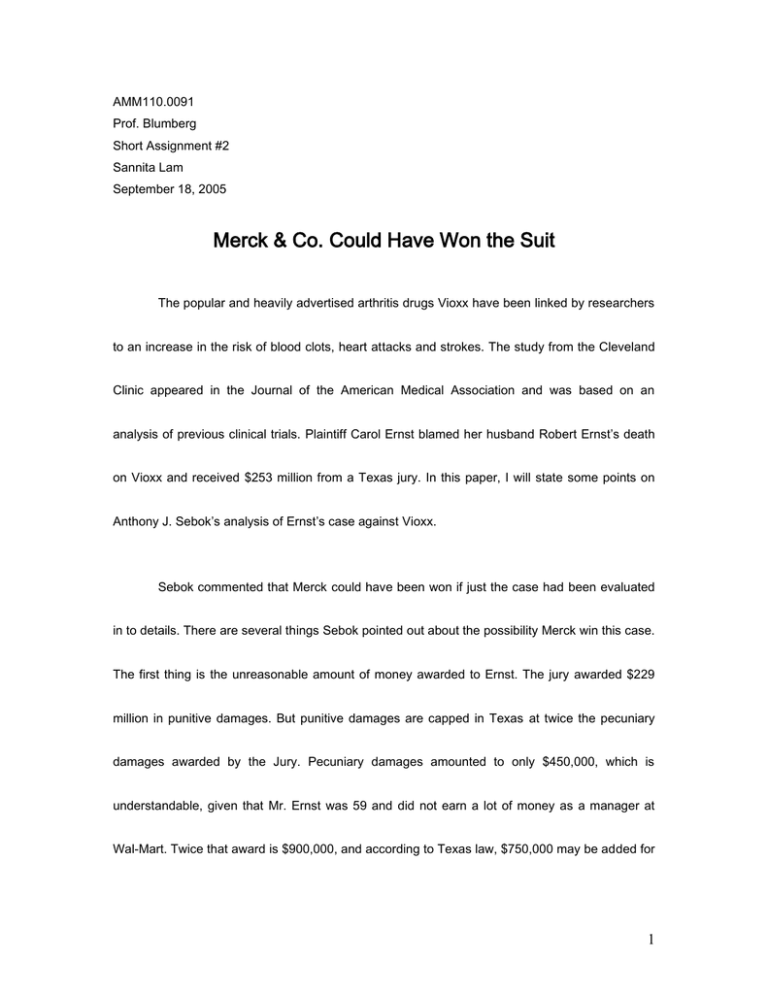
AMM110.0091 Prof. Blumberg Short Assignment #2 Sannita Lam September 18, 2005 Merck & Co. Could Have Won the Suit The popular and heavily advertised arthritis drugs Vioxx have been linked by researchers to an increase in the risk of blood clots, heart attacks and strokes. The study from the Cleveland Clinic appeared in the Journal of the American Medical Association and was based on an analysis of previous clinical trials. Plaintiff Carol Ernst blamed her husband Robert Ernst’s death on Vioxx and received $253 million from a Texas jury. In this paper, I will state some points on Anthony J. Sebok’s analysis of Ernst’s case against Vioxx. Sebok commented that Merck could have been won if just the case had been evaluated in to details. There are several things Sebok pointed out about the possibility Merck win this case. The first thing is the unreasonable amount of money awarded to Ernst. The jury awarded $229 million in punitive damages. But punitive damages are capped in Texas at twice the pecuniary damages awarded by the Jury. Pecuniary damages amounted to only $450,000, which is understandable, given that Mr. Ernst was 59 and did not earn a lot of money as a manager at Wal-Mart. Twice that award is $900,000, and according to Texas law, $750,000 may be added for 1 pain and suffering damages – so punitive damages could reach a total of $1.65 million – far less than the $229 million the jury awarded. The second thing Merck must cautious about is the weak causation evidence. Many observers thought that Merck would win this case because Ernst’s suit was very weak on the issue of causation. The coroner’s report for Ernst said that he died of cardiac arrhythmia, or an abnormal rate of muscle contractions in the heart. Merck voluntarily pulled Vioxx from the market a year ago because a large-scale post-release study showed that an elevated risk of heart attacks and strokes among patients who had taken the drug for eighteen months or longer. Ernst only had taken Vioxx for eight months. Ernst’s lawyer, Mark Lanier tried to overcome his client's causation problems by focusing on his opponent's bad character. The third thing Merck should be cautious about is the evidence that will increase punitive damages. Lanier found an internal memorandum noting that Merck could make an additional $229 million in sales if an FDA-requested warning were delayed for a certain period of time. The story that Lanier told was one in which Merck – driven by considerations of profit – rushed to get Vioxx onto the market as soon as possible, and with as few warnings as possible. Merck had better think another credible explanation for the jury, other than the company tried to place profits above the lives of patients. $229 million happens to be the amount of punitive damages the jury 2 awarded. The Texas jury was convinced that the $229 million memo was an attempt to justify evading the FDA than an attempt to help the company to rethink its estimates sales. Finally, the last thing that Merck and attorneys have to think about is the relevance of where the Ernst trial was held and who tried the case. Texas has a reputation of being a proplaintiff jurisdiction, especially when the defendant is an out-of-state corporation – Merck’s headquarters is in Whitehouse Station, NJ. Moreover, the trial judges in Texas are still reputed to be very pro-plaintiff. This situation will weaken the chances for Merck to win this litigation. Merck may do a lot better in other trials for several reasons; one of them being that judges elsewhere will not be so pro-plaintiff. 3
